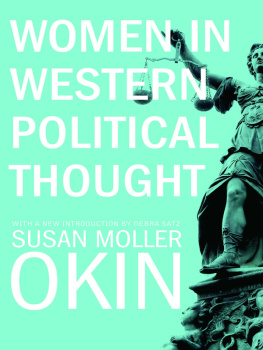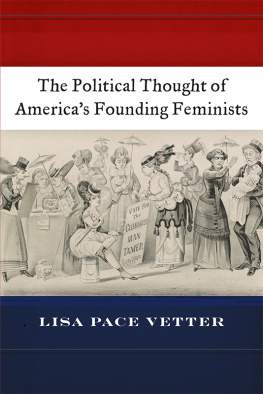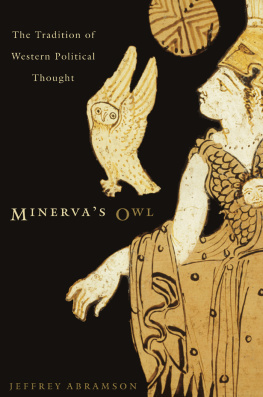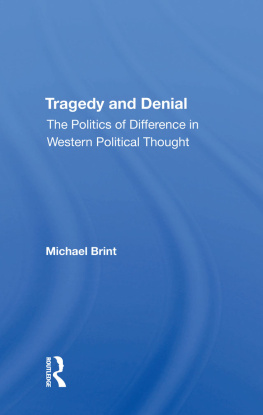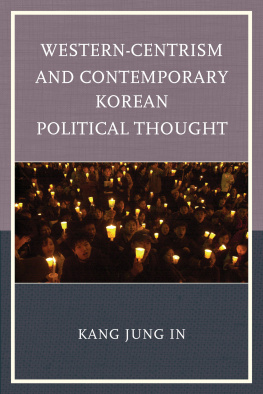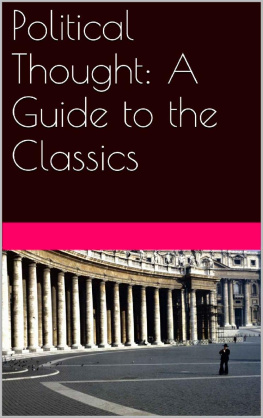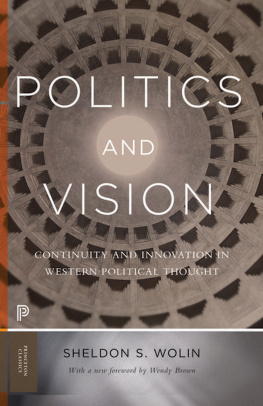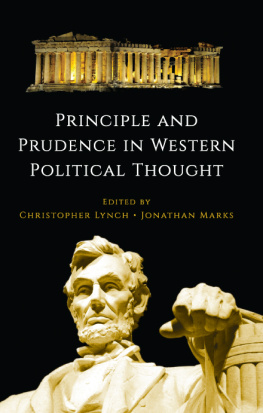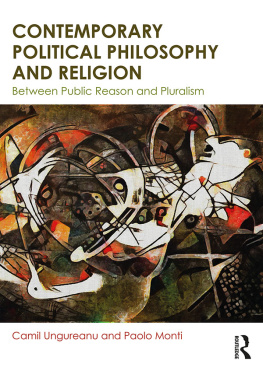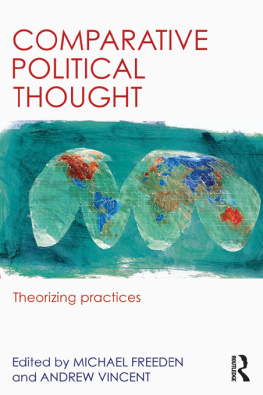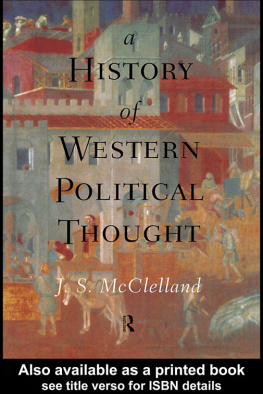Susan Moller Okin - Women in Western Political Thought
Here you can read online Susan Moller Okin - Women in Western Political Thought full text of the book (entire story) in english for free. Download pdf and epub, get meaning, cover and reviews about this ebook. year: 2013, publisher: Princeton University Press, genre: Home and family. Description of the work, (preface) as well as reviews are available. Best literature library LitArk.com created for fans of good reading and offers a wide selection of genres:
Romance novel
Science fiction
Adventure
Detective
Science
History
Home and family
Prose
Art
Politics
Computer
Non-fiction
Religion
Business
Children
Humor
Choose a favorite category and find really read worthwhile books. Enjoy immersion in the world of imagination, feel the emotions of the characters or learn something new for yourself, make an fascinating discovery.
- Book:Women in Western Political Thought
- Author:
- Publisher:Princeton University Press
- Genre:
- Year:2013
- Rating:4 / 5
- Favourites:Add to favourites
- Your mark:
- 80
- 1
- 2
- 3
- 4
- 5
Women in Western Political Thought: summary, description and annotation
We offer to read an annotation, description, summary or preface (depends on what the author of the book "Women in Western Political Thought" wrote himself). If you haven't found the necessary information about the book — write in the comments, we will try to find it.
Women in Western Political Thought — read online for free the complete book (whole text) full work
Below is the text of the book, divided by pages. System saving the place of the last page read, allows you to conveniently read the book "Women in Western Political Thought" online for free, without having to search again every time where you left off. Put a bookmark, and you can go to the page where you finished reading at any time.
Font size:
Interval:
Bookmark:

Women in Western Political Thought
Copyright 1979 by Princeton University Press
Published by Princeton University Press, 41 William Street, Princeton, New Jersey 08540
In the United Kingdom: Princeton University Press, 6 Oxford Street, Woodstock, Oxfordshire OX20 1TW
press.princeton.edu
All Rights Reserved
First printing, 1979
Seventh printing, with a new afterword, 1992
Paperback reissue, with a new introduction by Debra Satz, 2013
Library of Congress Control Number 2012956133
ISBN 978-0-691-15834-1
British Library Cataloging-in-Publication Data is available
This book has been composed in Linotron Baskerville
Printed on acid-free paper.
Printed in the United States of America
1 3 5 7 9 10 8 6 4 2
FOR
Bob and Laura
Introduction to the 2013 Edition Debra Satz
In every country of the world, women fare worse than men on a number of important indices: income and wealth, political participation, vulnerability to sexual assault, and degree of access to the most prestigious social positions. In many developing countries the inequalities based on gender are especially stark: girls are less likely to be educated, receive health care, or even to be fed than their male siblings. In India, for example, girls are 40 percent more likely to die before the age of five than boys. Despite our globalizing and democratizing twenty-first century, women continue to receive the short end of the stick. Why is this?
Susan Moller Okin (19462004) was a political theorist whose work issues a sharp challenge to the long-standing, deeply rooted, and continuing subordination of women in contemporary societies. Okin sought to identify and understand the complex sources of this subordination. She directed particular attention to the views of those political philosophers who either justified the subordination of women or complacently neglected to call it out. The great tradition of western political philosophy, she pointed out, consists of writings by men, for men and about men.
Okin argued that even contemporary theories of justice are in need of major reform. While she believed that liberal theories of justice had the potential to be tools in the fight against womens oppression, she argued that liberalisms philosophical proponents betrayed their own principles through their failure to explicitly question the traditional division of labor in which the majority of childrearing and housework falls to women, and by failing to regard the family as itself a schoolhouse for citizenship.
Women in Western Political Thought is based on Okins doctoral dissertation. Although an advisor admonished her that women are not a topic, it is our good fortune that she proceeded to work on this topic anyway. The result was a groundbreaking manuscript that systematically examines and critically dissects what canonical political theorists have said about women and their role in a just society. This is a book that should be read by anyone interested in the history of political philosophy in the Western world.
More than thirty years have passed since this books first publication in 1979, and some of its main insights are now incorporated into the discipline of political philosophy, in theory if not always in practice. Consider Okins claim that no plausible theory of justice can simply constrict womens role to the family. Few contemporary thinkers would dissent from that conclusion. Or consider her claim that women are largely and wrongly missing from the discussion of earlier political theorists. As soon as this is pointed out, the omission seems glaring. In fact, a recurrent feature of Okins work is that many of her ideas and arguments seem ex post facto obvious. As soon as she makes them, they seem absolutely apparent, even though just before reading her writings, these insights were invisible to us.
Many theorists now explicitly work on the issues of justice and gender that their predecessors ignored. But if political philosophy is different today, this is in no small part due to works like Women in Western Political Thought. Okin was part of a pioneering generation of feminist scholars who helped rework the traditional intellectual landscape by insisting that the condition of women, along with the family that so profoundly shapes that condition, is a central concern of justice. Her work changed the field.
Okins work had larger ambitions than criticizing such obviously unsupportable assumptions as Aristotles assertion that women are by nature unsuited to the public political realm. She wanted Women in Western Political Thought to accomplish a complete rethinking of political philosophy. In particular, she aimed to establish three theses:
1. While most of the tradition of political philosophy has either ignored or justified the subordination of women, we cannot simply add women as full moral and political equals into these earlier theories without demolishing them;
2. The linchpin of womens inequality is the family, and without altering the family women will never be the full moral and political equals of men; and that accordingly:
3. The view of the family as part of a personal realm outside of, and wholly separate from, the political realm cannot be sustained.
Okin seeks to defend these three claims by examining the place of women in the theories of Plato, Aristotle, Rousseau, and Mill. With the exception of Plato, to whom I will return, each of these thinkers theories is distorted in important respects by their views of the family and the division of labor within it. Women were assumed to have the primary responsibility for raising children and managing the household; while men were assumed to be free individuals who were ends in themselves, women were more or less defined by their functions. None of these theories, she argued, would be able to consistently sustain the inclusion of women as the moral equals of men without challenging basic and age-old assumptions about the family, its traditional sex roles, and its relation to the wider world of political society.
Consider Aristotle. Aristotle held that women have a natural function: their purpose is reproduction and childrearing, so that men can be left free to pursue politics. If he denied the natural inferiority of women, then his argument for the natural inferiority of slaves would also be in jeopardy. Pull on this one thread, and Aristotles case for natural hierarchy is unraveled.
Likewise, Okin claims, with Rousseau. Rousseaus participatory democracy requires the existence of citizens who can devote considerable time to meetings and civic matters. If all the adults of both sexes were to be as much preoccupied with civic activity as citizenship in a direct democracy requires, who would maintain the private sphere of life which Rousseau perceives as crucially important? Since children cannot raise themselves, something has to give way: direct, participatory democracy or womens equality. In each of these cases, other aspects of these thinkers theories require the assumption that the family is a natural sphere where women perform most of the work.
Even Mills work cannot sustain, according to Okin, the full equality of women. While Mill writes a major work of feminist theory, The Subjection of Women, nonetheless he cannot imagine that married women would not assume their traditional responsibility for the unpaid labor of the family. He thus condoned, despite his liberal egalitarian aims, the continuation of differences in power and opportunity between men and women with children.
Okin amplifies her thesis with a brilliant discussion of Platos political thought. In Platos
Next pageFont size:
Interval:
Bookmark:
Similar books «Women in Western Political Thought»
Look at similar books to Women in Western Political Thought. We have selected literature similar in name and meaning in the hope of providing readers with more options to find new, interesting, not yet read works.
Discussion, reviews of the book Women in Western Political Thought and just readers' own opinions. Leave your comments, write what you think about the work, its meaning or the main characters. Specify what exactly you liked and what you didn't like, and why you think so.

